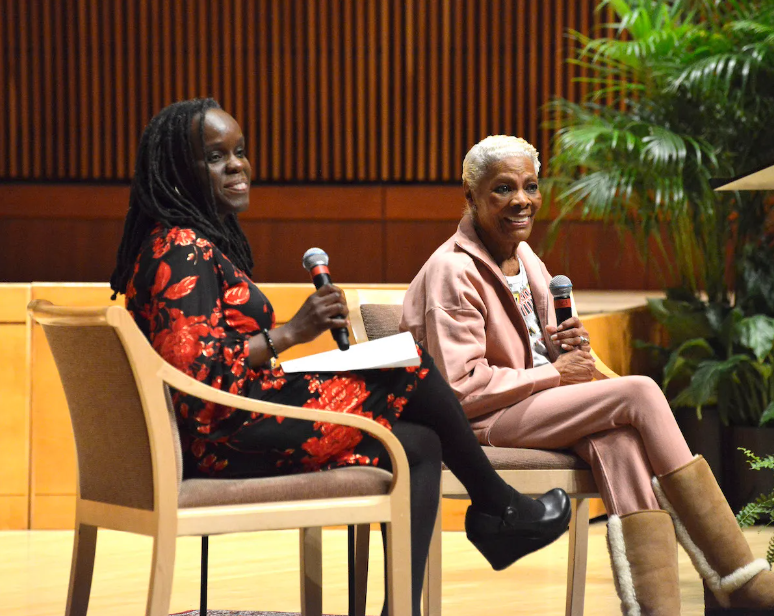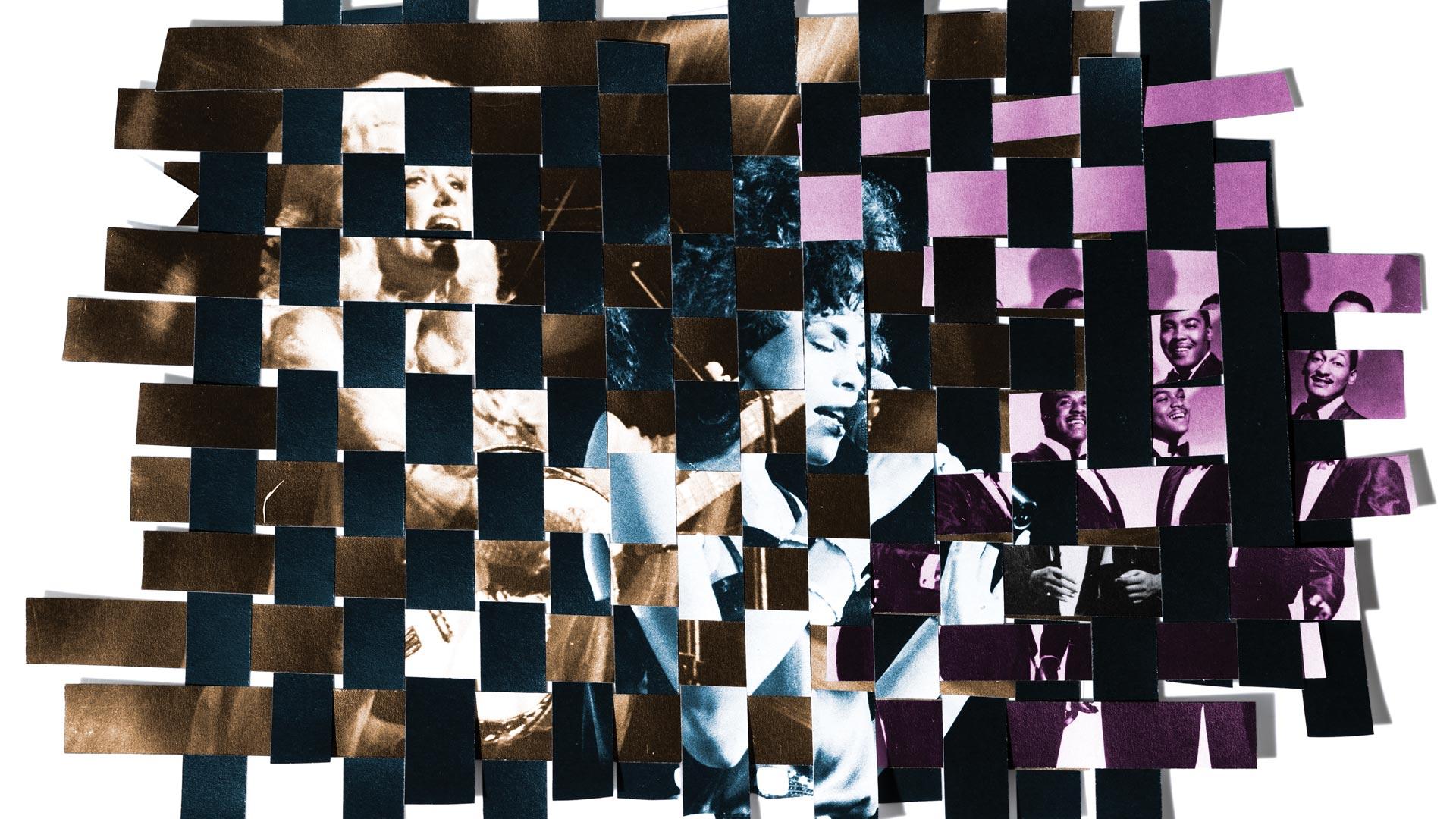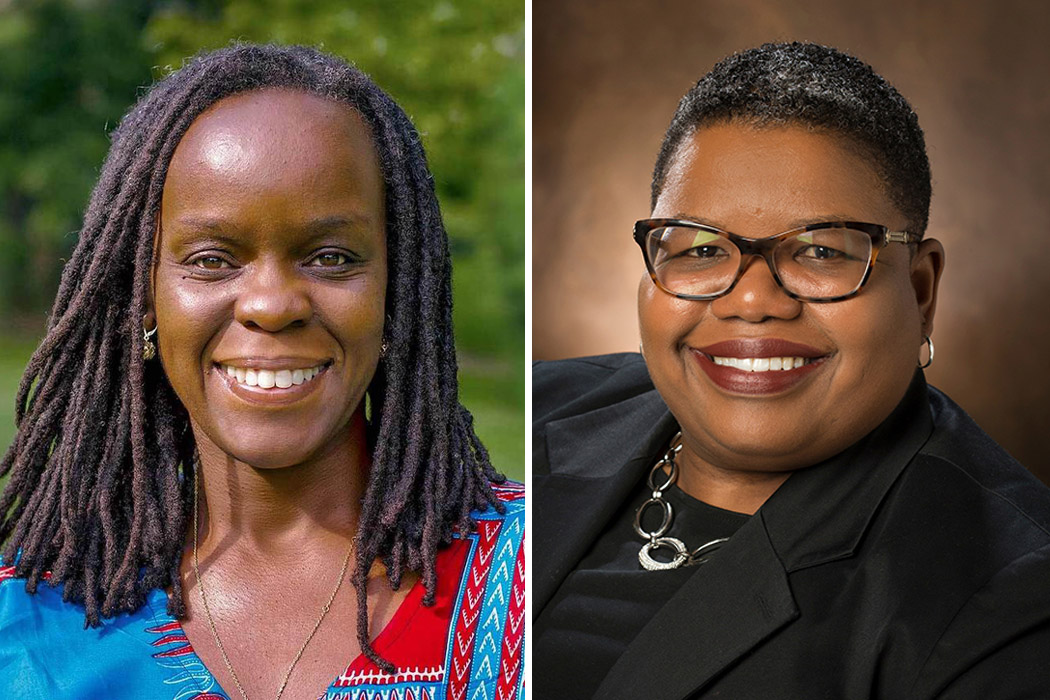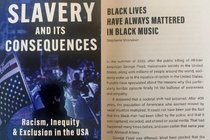by Brenda C. Siler
With a 61-year career, multiple prestigious awards, and more than 633,000 Twitter followers, Dionne Warwick is universally loved. An audience of more than 600 students and fans flocked to the University of Maryland (UMD) College Park to hear Warwick, 82, serve as the inaugural speaker at the Arts and Humanities Dean’s Lecture Series – and she did not disappoint. In a captivating conversation hosted by Stephanie Shonekan, Ph.D., UMD’s dean of the College of Arts and Humanities, the legendary singer shared lessons, dished on her life and career, and updated audiences on exciting new projects.
Before the chat between Shonekan and Warwick, a small student ensemble performed three hits from the singer’s repertoire. Led by Tim Powell, interim head of jazz studies, the audience was treated to renditions of “Do You Know the Way to San Jose,” “Walk on By,” and “I Say a Little Prayer.” Vocalists Ronya Lee Anderson and Lynique Webster showcased their strong pipes as Warwick and Shonekan applauded enthusiastically from their box seats.
Then Shonekan introduced the icon to an eagerly awaiting audience.
“I remember hearing that warm gorgeous voice and gazing at her on the cover of the ‘Heartbreaker’ album,” said Shonekan, born in Trinidad and raised in Nigeria. “I don’t think I can put into words what the full Dionne Warwick package meant to my younger self.”
Hits with Bacharach and David
During a question-and-answer period, several students said that Warwick’s music filled the air growing up. Without a doubt, songs composed and produced for Warwick by Burt Bacharach and Hal David have stood the test of time, with a music catalog that continues to be the soundtrack of many people’s lives.
Warwick discussed why the Bachrach/David/Warwick collaboration worked.
“I think more than anything, we appreciated what each of us was bringing to the table,” she said.
As the icon reflected on hits like “Anyone Who Had a Heart,” “Alfie,” “Message to Michael,” “Reach Out for Me,” “Don’t Make Me Over,” and so many more, there was applause or sounds of agreement like “Hmmmm” and nodding from the engaged audience.
The Breakup
Warwick also answered my question about why Bacharach and David broke up, a separation that lasted for 10 years. For Warwick, that meant she no longer had the producing team that garnered so many classic hits.
“They did a movie called ‘Lost Horizon’ that didn’t do well,” said Warwick about the award-winning music duo. “That was it,” she continued, giving a thumbs-down signal for the movie soundtrack.
In came mega record producer Clive Davis who connected Warwick with Barry Gibb, the singer, composer and producer from the best-selling group the Bee Gees. He wrote and produced Warwick’s biggest seller, “Heartbreaker.” She did not want to record the song, but Gibb wore her down.
Bacharach and David did reconcile and worked together on several projects. David died in 2012. Bacharach died recently on February 8. Warwick worked with Bacharach on the HIV-AIDS support anthem “That’s What Friends Are For.”
New Music
Warwick and another music icon Dolly Parton recently announced a collaboration on a gospel song. Their song, “Peace Like a River,” will be released on Feb. 23.
When Warwick responded to a question about singers she likes, she admitted that Earth, Wind & Fire was a group she loved and could listen to at any time. Warwick then gave a jaw-dropping announcement: she is working on a project with Earth, Wind & Fire.
The evening finished with the UMD musicians singing “That’s What Friends Are For.”
“Dionne Warwick: Don’t Make Me Over,” a documentary about the singer’s life and career, is now on HBO Max.













